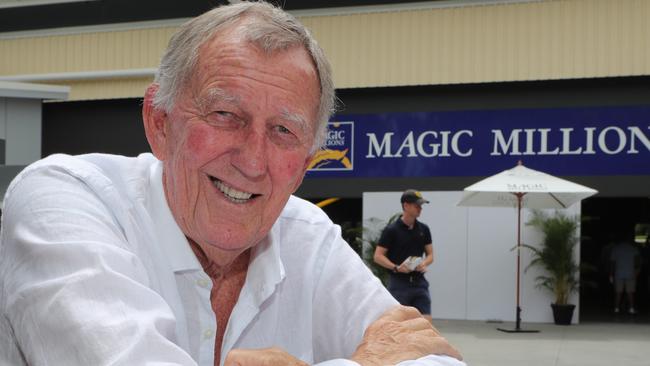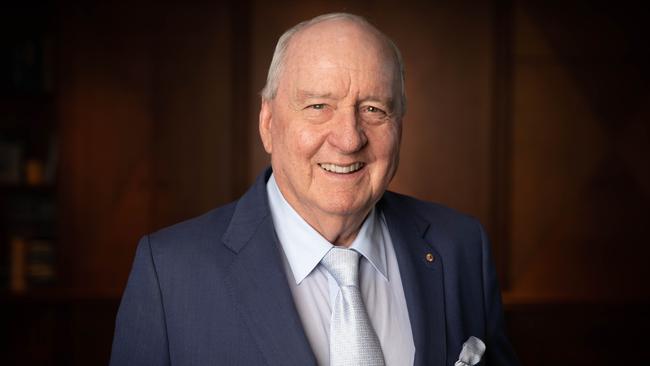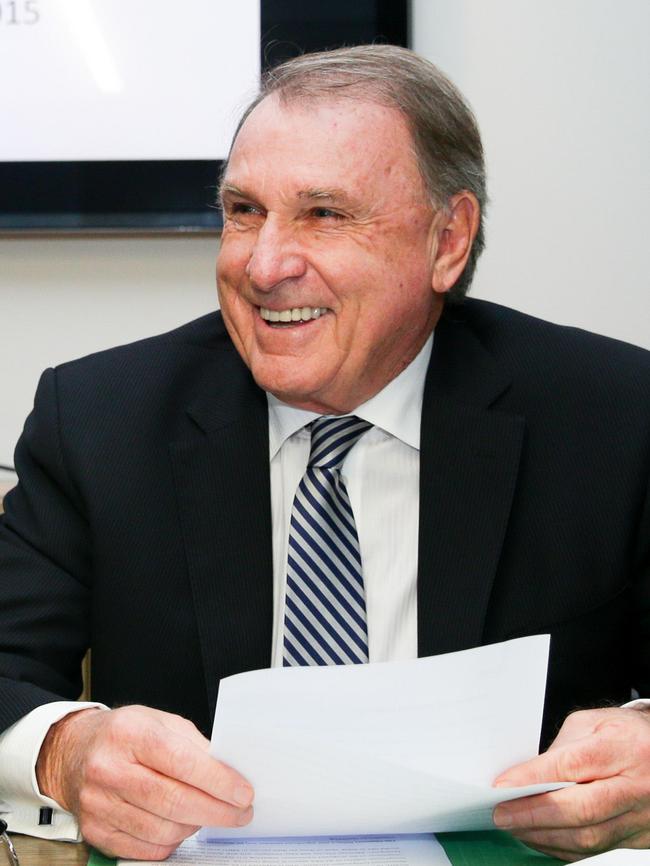Terry McCrann: The bizarre twists behind radio offer
Nine’s move to take out the minority shareholders in the Macquarie radio network was both fully expected and utterly bizarre, writes Terry McCrann.
Terry McCrann
Don't miss out on the headlines from Terry McCrann. Followed categories will be added to My News.
Nine’s move to take out the minority shareholders — read: John Singleton — in the Macquarie radio network, home of best buddies Alan Jones and Ray Hadley north of the Murray and their similarly twined counterparts Ross & John and Neil south of it, was both fully expected and utterly bizarre.
Just as expected as the offer itself, was that it will be in cash. There is no way that Singleton was ever going to swap a relatively influential, if minority, stake in Macquarie for a completely insignificant tiny stake in the combine of Nine and the Fairfax papers and Macquarie by taking Nine shares.

Nowhere near as expected, though, was that the cash offered — $1.46 a share — was a thumping 28.5c a share less than Macquarie’s last traded sale a couple of weeks ago.
Normally — like, every time — a bidder has to offer something more than the latest market price, other than those rare times (we and especially regulators hope, that they are rare) when the offer has ‘leaked’ into the market and the price has zoomed ahead of the formal bid disclosure.
There’s been none of that this time. Yes, Macquarie’s share price has risen over the last few months, but broadly just in line with the overall market — including the share price of its controlling parent Nine.
Indeed that last closing price was well down on the levels around $2.20 of just a year ago, when speculation of a bid by Nine to mop up the 45.6 per cent of Macquarie it didn’t own was at a peak. And Singleton was reported as wanting $2.50.
Yet out of the blue Nine offered just $1.46 — and the “independent directors” met on Sunday and immediately unanimously recommended that all shareholders accept the offer!
Yes, that recommendation carried the usual form qualification: “in the absence of a superior proposal and subject to an independent expert opining that the offer was reasonable”.

Bizarrely, if hardly surprisingly, neither the bidder Nine nor the target’s ‘independent directors’ made any reference to the fact that the $1.46 offer price was that 28.5c below the last traded sale at $1.745.
While you might understand Nine’s failure to mention this gap, you would expect the Macquarie ‘independent directors’ to at least provide some rationalisation for their endorsement of an offer so far below what seemed to have been the market, albeit very thinly traded.
Yet, far from doing that, they actually argued that the offer provided shareholders “the opportunity to receive certain value of $1.46 per share in cash”.
Hmm, well, through last Friday and up until three ‘independent directors’ recommended acceptance, almost all shareholders had the opportunity to probably receive “certain value” somewhat higher.
Apart from Nine’s 54.4 per cent — inherited when it merged with Fairfax — Singleton has 32 per cent, his mate and occasional business partner Mark Carnegie 4 per cent and activist investor Geoff Wilson also 4 per cent.
That leaves barely 5 per cent in the scattered hands of other shareholders. It also means that provided Singleton accepts, the bid is almost a done deal; and it certainly is a done deal if Singleton and Carnegie accept.
Now, I’ve put independent directors in quotation marks not to question their independence as such, but because they are using it in a very specific sense — that is, independent of the bidder, Nine.

There were three: chairman Russell Tate, Louise McCann and Monique Anderson.
It is the third that is interesting. Yes, she is independent of the bidder Nine, but she is not considered an ‘independent director’ in governance terms because she represents Singleton and his 32 per cent holding.
Indeed, until the Nine takeover Tate was not considered ‘independent’ as he was then executive chairman; but you might reasonably conclude that Nine was happy for him to continue as a non-executive chairman under their controlling stake.
One can also only reasonably conclude that with Anderson recommending the offer Singleton is prepared to sell at the $1.46 and make it all-but a done deal.
But then what gives it a further bizarre twist is that the offer is conditional on Singleton entering a ‘non-compete’ — they call it a “deed of restraint” — for up to three years. Nine obviously doesn’t want to hand over the cash to Singleton, only to see him steal away the radio stars, as he did first time around to set up Macquarie in the first place.
ONE PRAT’S IDIOCY ON BREXIT
Talking of the Fairfax papers, using initials for your byline doesn’t prove you are a prat but it’s a very good hint.
Writing in those “Nine Papers’, British columnist AC Grayling opined that Brexit was a tragedy and would, if done, be reversed.
It was a typical observation from an absolutely clueless Europhile who thinks the sun shines out of bureaucracy central: Brussels.
Europe is a rotting carcass: Britain would be insane to walk back from cutting itself loose. It is also a protection racketfor Germany and to a lesser extent France.
Secondly, because of the utter ineptitude of Theresa May, Britain might actually end up ‘lucking into’ the Brexit that 52per cent of voters actually voted for: a no-deal Brexit.
They didn’t vote for the Brussels-imposed Hotel California version — where you could check-out but you couldn’t really leave.An idiot like AC Grayling wouldn’t understand, but the US does very well not being part of Europe. So will the UK.



